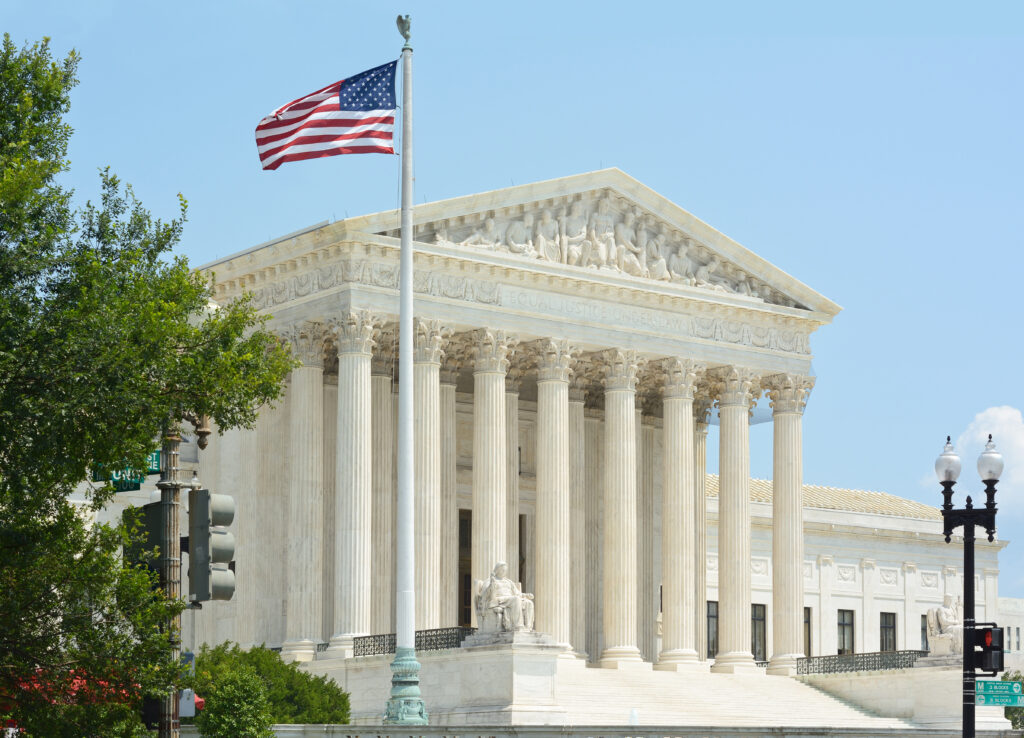Mississippi Asks SCOTUS to Restore Mail-In Ballot Grace Period After GOP Bid to Kill It

Mississippi’s Republican secretary of state is asking the Supreme Court to rule against a coalition of GOP groups and reinstate a five-day post-election grace period for late mail-in ballots struck down by a federal appeals court.
The state says that banning such ballots could jeopardize the voting rights of military and overseas voters, many of whom cast late-arriving ballots, in numerous states.
Sec. of State Michael Watson filed a brief in Republican National Committee v. Wetzel* Monday, asking the Court to overturn the Fifth Circuit’s ruling last October, which held that the grace period violated federal law.
The RNC and Mississippi GOP sued in 2024, challenging the state law allowing election administrators to count mail-in ballots if they arrive within five business days after the election, provided they were postmarked on or before Election Day.
Sixteen states have similar grace periods. They act as a safeguard for voters who rely on the mail to vote — particularly military, overseas and rural voters — by ensuring that postal service delays don’t lead to tossed ballots.
The plaintiffs claimed that extending the receipt deadline “dilutes the weight of timely, valid ballots” of voters who comply with the deadline.
The district court disagreed, ruling for Mississippi, but the Fifth Circuit reversed, holding that “the receipt and counting of ballots after federal Election Day… extends the election beyond the day set by Congress,” and so was preempted by federal statute. The ruling by the conservative appeals court raised eyebrows among many voting experts, who had viewed the case against mail ballots as unlikely to succeed.
Earlier this month, the Republican National Committee asked the Supreme Court to let the 5th Circuit’s decision stand.
In his petition, Watson argues that mail-in ballots are effectively cast when voters place them in the mail, not when the election office receives them. He further argues that nothing in the text of the Help America Vote Act suggests Congress intended to ban mail-in ballot grace periods.
“[R]espondents have cited nothing—no judicial decision, no legislative finding, no legislator’s statement, no treatise, nothing—to show that any State imposed an election-day ballot receipt deadline because it thought the federal election-day statutes require it,” the petition argues.
The petition additionally warns there would be far-reaching consequences to allowing the Fifth Circuit’s decision stand.
“The rule the court of appeals adopted would invalidate not just state laws allowing post-election-day ballot receipt for voters generally but also state laws allowing post-election-day ballot receipt for overseas and military voters—all told, the laws of about 30 States and the District of Columbia,” the petition argues.
In Congress, Republicans are currently proposing a bill that would explicitly end grace periods.
The Supreme Court’s conservative supermajority could theoretically take up the case now and strike down grace periods nationwide. But by asking the court to stay out, the RNC has signaled it wants to protect its regional victory and possibly use it as precedent in other states before risking a nationwide ruling. Other conservative groups want the Supreme Court to take up the case, hoping it will issue a sweeping ruling ahead of the 2026 midterm elections.
For now, the Fifth Circuit decision remains binding in Mississippi, Louisiana and Texas. Voting rights advocates warn, however, other federal courts could adopt the Fifth’s reasoning, leading to millions of voters in other states that allow grace periods losing access to having their ballots counted.
The Republican effort to end grace periods for mail-in ballots is part of a broader GOP war on main voting. President Donald Trump last week said he intends to eliminate the popular practice entirely, though lacks the power to do so.
Yunior Rivas contributed to this report.
*The Elias Law Group (ELG) represents respondents pro-voting parties in this case. ELG firm chair Marc Elias is the founder of Democracy Docket.